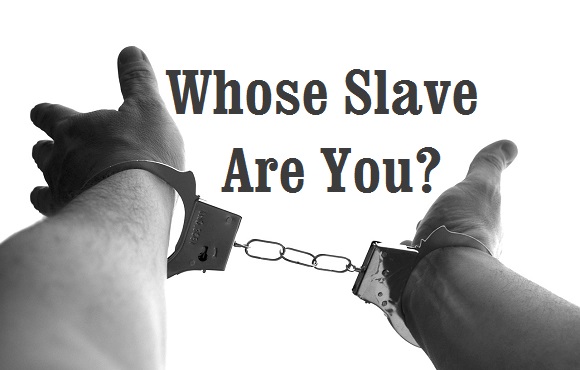Free to serve God sounds like a paradox.
Only God is totally free. There is no such thing as absolute freedom for anyone other than God. No human being is absolutely free to do anything and everything he may want to do. Every individual is limited by or enslaved by someone or something. No one is autonomous.
We are either slaves in bondage to sin or servants of Jesus Christ. However, to be a slave of Jesus Christ is to enjoy true freedom.
This is why the apostle Paul argues in Romans 6:15-18 that it is impossible for true Christians to continue in sin (6:1, 15). We have been set free from the power and bondage of sin to become the instruments of righteousness. “We are no longer slaves to sin” (vv. 6-7).
Salvation by grace does not lead to a life of sin (6:1-2). It does exactly the opposite. Our identification with Christ gives us the goal to live a life that will please Him and glorify His life. We are saved by grace that we “might walk in newness of life” (v. 4). The implication of the verb is that we will “walk about, meaning our habitual character will be pleasing to God. We will live with Him in our daily life (v. 8). The life of grace leads to righteousness (6:11-14).
Since salvation by grace does not lead to sin, but freedom to live in the power of Christ, Paul goes on to argue that the Law as a means to righteousness is not possible. Freedom from the Law does not lead to sin either. The Christian who is saved by grace has been freed from the Law.
“For sin shall not be master over you, for you are not under law but under grace” (Rom. 6:14). We are saved by grace to become slaves to righteousness.
What is the passion of your life? What do you live for? What motivates your daily life? What is the goal you are constantly moving toward? Whose slave are you?
Christians must constantly guard against two extremes. We can easily fall into the error of legalism. The Law cannot produce God’s righteousness in anyone. It can only point its finger and bring condemnation. It can put forth its demands, but it cannot give us power to meet those demands. I have never met a legalist who lived up to all of the demands of the Law, much less their own legalism.
The only means of being empowered to produce God’s kind of righteousness is the freedom in Christ through a vital union with Him. Jesus Christ living within us empowers us to do what the Law requires. Salvation by grace in Christ alone leads to the righteousness God requires.
The other error is antinomianism—against the law. These individuals think that grace gives them freedom from the law to do anything they please. “Now that I am saved I can live anyway I want.” Grace is not a license to “sin it up” (vv. 15-23). Salvation by grace does not give us the freedom to go on sinning as legalists suppose. It does just the opposite; it gives us freedom and power to serve God and please Him in the strength He gives.
Sin enslaves us, but Christ sets us free from sin’s bondage so we can please God. If you submit to sinful passions, you will become a slave to sinful passions, and you will not be able to break the bondage. That is true of all the sins listed in Galatians 5:19-21.
Sin leads to death—spiritually, physically, and eternally. The second death leads to an eternal separation from God in hell.
Thanks be to God who has set us free from sin’s slavery through the atonement of Jesus Christ. We “have been set free from sin and have become slaves to righteousness” (v. 18).
Our true freedom is found in Christ alone (v. 22). The same saving grace that freed us from sin enslaves us to God. This slavery, however, brings freedom—true freedom—to become all that God created us to be.
If we choose sin, the result is a life of bondage. If we choose Christ, we are set free to serve God in righteousness. Anything less than a life of righteousness is a life of slavery to sin which always results in eternal death. If we have been freed from sin by the grace of God, we will serve Him in righteousness.
“It was for freedom that Christ set us free; therefore keep standing firm and do not be subject again to a yoke of slavery” (Galatians 5:1).

